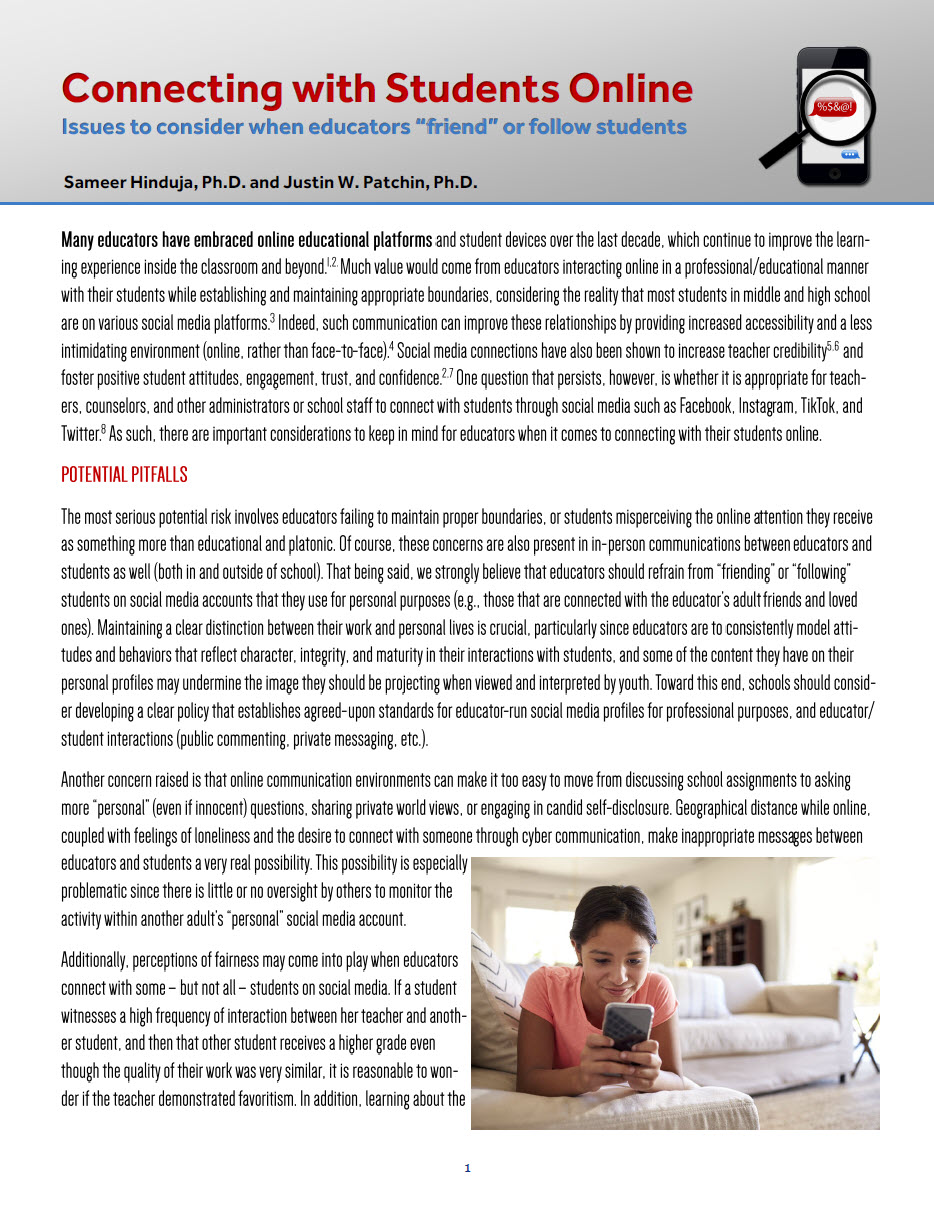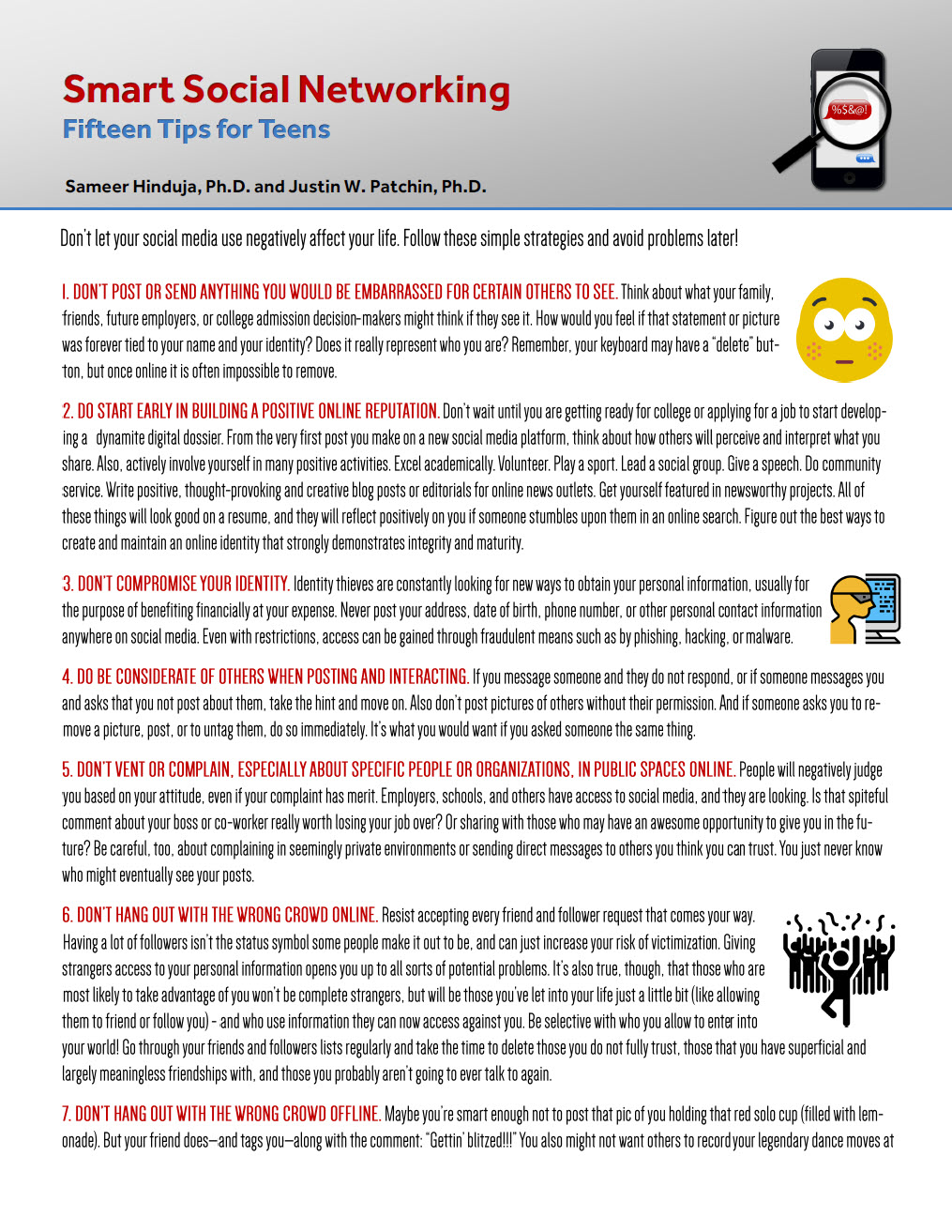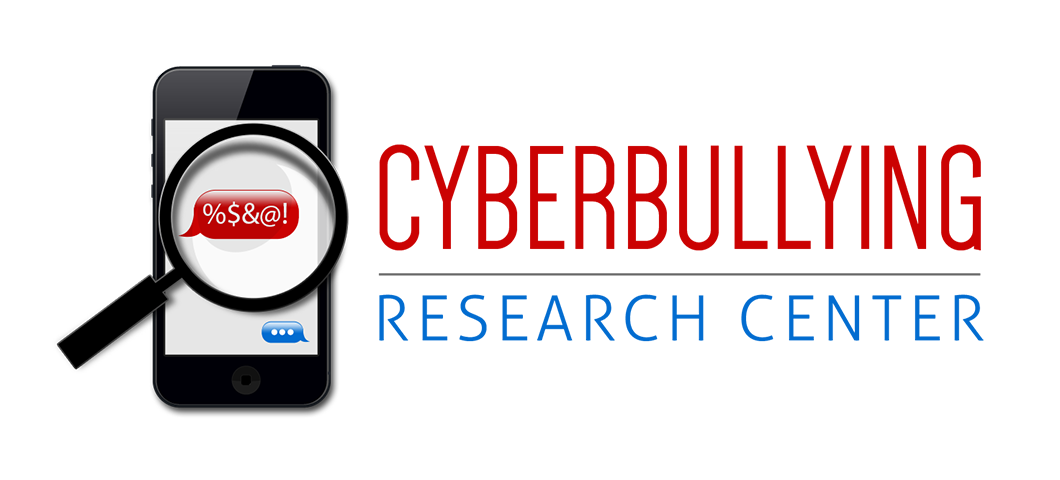
Connecting with Students Online: Issues to Consider When Educators “Friend” Students
This fact sheet provides information for educators and students to keep in mind when connecting via social media. Hinduja, S. & Patchin, J. (2020). Connecting with Students Online: Issues to Consider When Educators “Friend” Students. Cyberbullying Research Center. Download PDF

Smart Social Networking: Fifteen Tips for Teens
(For a formatted .pdf version of this article for distribution, click on the image above [or click here]). Spanish Translation Available Here Don’t let your social media use negatively affect your life. Follow these simple strategies and avoid problems later! 1. DON’T POST OR SEND ANYTHING YOU WOULD BE EMBARRASSED FOR CERTAIN OTHERS TO SEE. […]

Be Careful Who You “Friend” Online: A Cautionary Tale
In our school assemblies, Sameer and I regularly talk with students about using social media safely and responsibly. One part of this discussion focuses on encouraging youth to only connect on private accounts with those they know and trust. In general, if a Facebook user, for example, has their privacy settings configured in a way […]

Is it Ok for Educators to Connect with Students on Facebook?
Some of you may have seen that we posted a new fact sheet earlier in the week with information for educators and students to keep in mind when connecting via social media. This has been a topic of intense debate on this blog for years and we would love to hear your opinions. So, before […]

Catfishing as a Form of Cyberbullying
“Catfishing,” at least in the online world, refers to the practice of setting up a fictitious online profile, most often for the purpose of luring another into a fraudulent romantic relationship. The Urban Dictionary defines a “catfish” as: “someone who pretends to be someone they’re not using Facebook or other social media to create false […]

Help With Fake Facebook Profile Pages
Imagine you receive an email from a friend that includes a link to a Facebook profile. You click on the link and see your name and picture on the profile. But you didn’t create it. And some of the information included isn’t exactly flattering. In fact, it’s embarrassing, and malicious, and ruining your reputation. Now […]

Pause Before You Post
Technology is great and we know from our research that the vast majority of teens are using it safely and responsibly. But a few are creating problems for themselves or others by what they post online. That’s why we’ve partnered with Jostens to produce a number of useful resources for you to educate yourself or […]

Resources to Teach Your Students about Cyberbullying and Online Responsibility
Now is the time to start thinking about what *you* are going to do to educate your students about cyberbullying, digital citizenship, online responsibility, and overall safety. A key to any educational effort is consistent reinforcement of the messages you want students to incorporate into their daily lives. Convening an all-school assembly on these topics […]

Jostens Renaissance 2011: You Make it Matter
As regular readers of this blog will know, Sameer and I have had a long partnership with Jostens. When I was in high school in the mid-1990s, our class rings and yearbooks came from Jostens, so I knew of the brand. About four years ago, Charley Nelson, who is the director of educator services for […]

How young is too young for Facebook?
This is a common question I receive from many parents: “At what age should I give my child a cell phone or allow them to be on Facebook?” Of course this is not an easy question to answer since every child is different and parents themselves are probably in the best position to determine the […]

